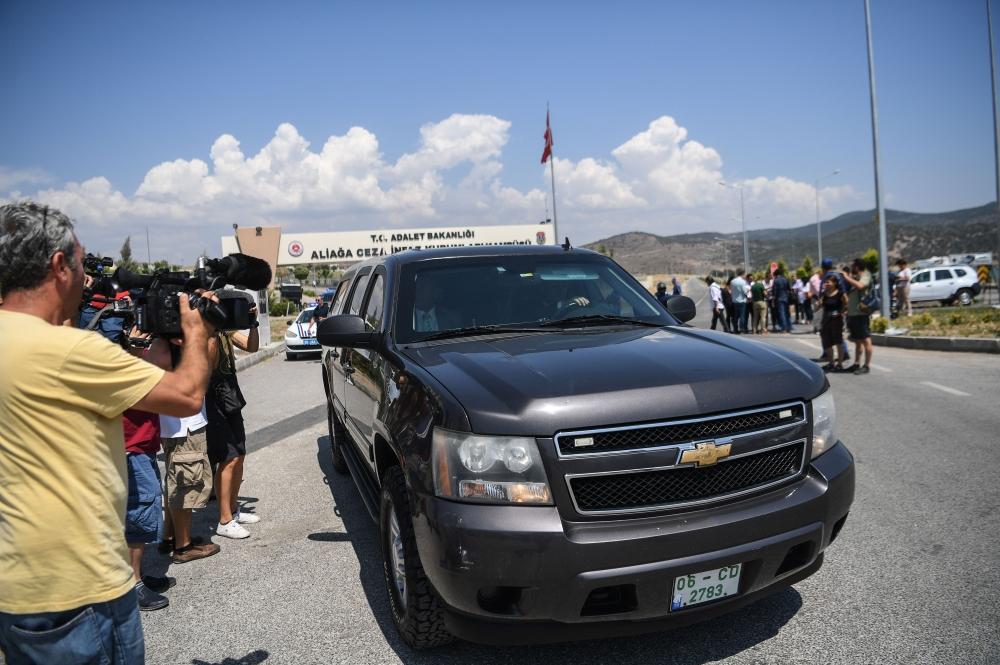
BRUSSELS — The European Union welcomed Turkey’s lifting on Thursday a two-year state of emergency but voiced fears it will be offset by other restrictive legislative measures.
The EU also reminded President Recep Tayyip Erdogan’s government that “concrete and lasting improvements” on the rule of law were essential for closer ties between Brussels and Ankara, which is in talks to join the bloc.
“The end of the state of emergency in place in Turkey since the coup attempt of 2016 is a welcome step,” said the EU’s diplomatic arm, the external action service.
But it added: “We believe the adoption of new legislative proposals granting extraordinary powers to the authorities and retaining several restrictive elements of the state of emergency would dampen any positive effect of its termination.”
The EU statement urged Ankara to respect the separation of powers between the executive and the judiciary.
With the lifting of the state of emergency, it urged Ankara to reverse all measures that continue to undermine the rule of law, independence of the courts and basic democratic freedoms.
“Concrete and lasting improvements in the area of rule of law and fundamental freedoms remain essential to the prospects of EU-Turkey relations,” it said.
As a result of the crackdown, the EU has frozen opening new “chapters” in Turkey’s EU membership process.
Negotiations began in 2005 and so far Turkey has opened just 16 out of 33 chapters.
Erdogan declared the state of emergency on July 20, 2016, five days after warplanes bombed Ankara and bloody clashes broke out in Istanbul in a doomed putsch bid that claimed 249 lives.
The measure, which normally lasts three months but was extended seven times, ended at 1:00 a.m. on Thursday (2200 GMT Wednesday), the state-run Anadolu news agency said, after the government decided not to ask that it be extended for an eighth time.
The state of emergency saw the detention of some 80,000 people and about double that number sacked from jobs in public institutions.
The biggest purge of Turkey’s modern history has targeted not just alleged supporters of Fethullah Gulen, the US-based preacher blamed for the coup, but also Kurdish activists and leftists.
The former leaders of the opposition pro-Kurdish Peoples’ Democratic Party (HDP) — Figen Yuksekdag and Selahattin Demirtas — are still languishing in jail following their arrest in November 2016 on charges of links to Kurdish militants.
During last month’s presidential election campaign, which he won, Erdogan pledged that the state of emergency would end.
But the opposition has been angered by the government’s submission of new legislation to parliament that apparently seeks to formalize some of the harshest aspects of the emergency.
The main opposition Republican People’s Party (CHP) said the new measures would amount to a state of emergency on their own.
“With this bill, with the measures in this text, the state of emergency will not be extended for three months, but for three years,” said the head of the CHP’s parliamentary faction, Ozgur Ozel.
“They make it look like they are lifting the emergency but in fact they are continuing it,” he added.
Under the proposed legislation, the authorities will retain for three more years the power to sack civil servants deemed linked to “terror” groups, retaining a key power of the state of emergency.
Protests and gatherings will be banned in open public areas after sunset, although they can be authorized until midnight if they do not disturb the public order.
Local authorities will be able to prohibit individuals from entering or leaving a defined area for 15 days on security grounds.
And a suspect can be held without charge for 48 hours or up to four days in the case of multiple offences.
This period can be extended up to twice if there is difficulty in collecting evidence or if the case is deemed to be particularly voluminous.
Meanwhile, President Donald Trump on Wednesday urged Erdogan on Twitter to free an American pastor held in Turkey.
“A total disgrace that Turkey will not release a respected US Pastor, Andrew Brunson, from prison. He has been held hostage far too long.
“@RT_Erdogan should do something to free this wonderful Christian husband & father. He has done nothing wrong, and his family needs him!” Trump tweeted.
Just hours earlier a Turkish court ordered an American pastor held for almost two years on terror charges to remain in prison, defying growing pressure from the US authorities for his release.
The case of Andrew Brunson, who ran a Protestant church in the Aegean city of Izmir and was first detained in October 2016, has become a major sticking point in improving relations between Ankara and Washington.
This is the third time his release has been refused — the court had in both previous hearings on April 16 and May 7 denied requests by the defense for Brunson to be set free.
The judge said the next hearing would be on Oct. 12
